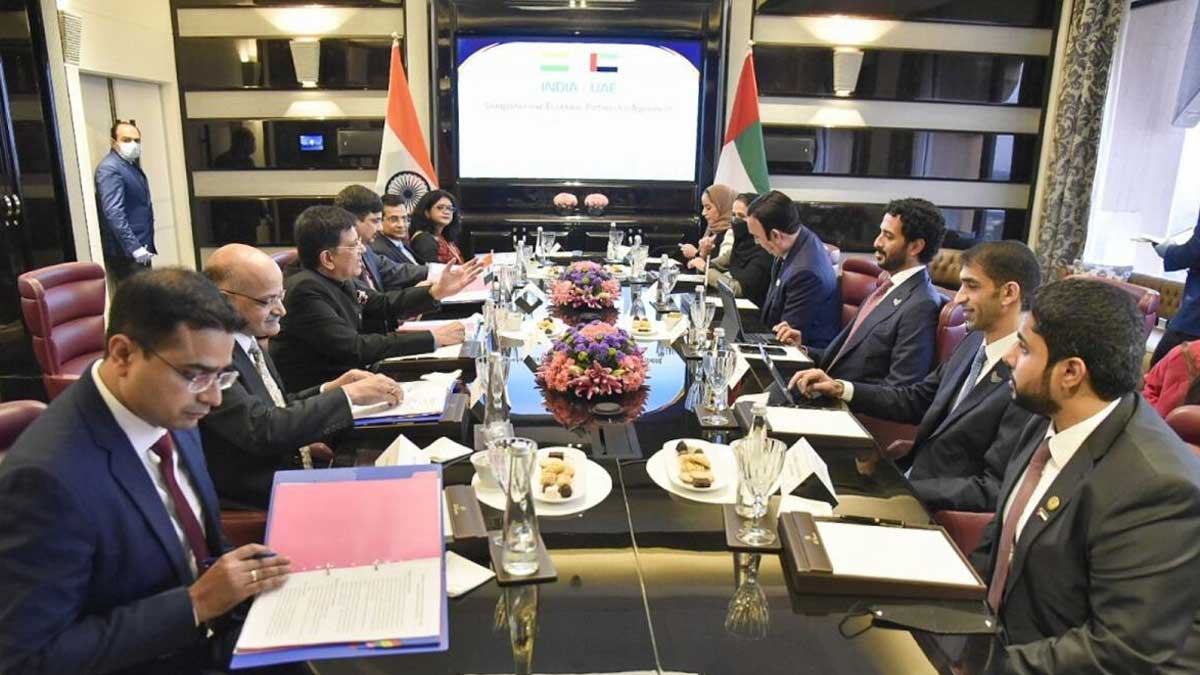The UAE and India have struck a broad trade and investment agreement that is anticipated to increase bilateral trade to far more than $100 billion in the next five years.
The UAE-India Comprehensive Economic Partnership Agreement (UAE-India CEPA) is the UAE’s first bilateral trade agreement, as well as India’s first in the Middle East and North Africa region.
“India is one of our most significant strategic allies, and this agreement puts us together than ever before,” Sheikh Mohamed bin Zayed Al Nahyan, the UAE’s de facto leader, said during a virtual summit with India’s Prime Minister Narendra Modi on Friday.
“This contract vows to provide substantial benefits to UAE and Indian businesses, including reduced tariffs and improved market access,” he added. “It will also inject new into trading corridors from Africa to Asia, laying the foundations for growth and prosperity that will benefit the entire region.”
Read more: Pakistan and China sign military agreement in response to US-India pact
The agreement represents a step forward in the UAE-India relationship. The United Arab Emirates is India’s third-largest trading partner, with bilateral trade set to exceed $60 billion this fiscal year. India is also the UAE’s most important non-oil trading partner, accounting for almost 14% of the UAE’s total non-oil exports globally.
In an interview, Thani Al Zeyoudi, UAE minister of state for foreign trade, stated, “There will be tariff removal on more than 80% of goods that go to India, and significant economic benefits for both countries by having more market access, new attractions for investments, and creating opportunities in key sectors.”
The agreement is anticipated to increase bilateral trade in goods to over $100 billion in the next five years, as well as increase bilateral trade in services to over $15 billion. According to the minister, the agreement will increase UAE GDP by 1.7 percent over the next ten years, improve exports, and produce more than 140,000 employment.
Business services, telecommunications, building and development, education, environment, financial sector, health services, tourism, hospitality, and maritime and air transport services, among others, are expected to benefit, according to the minister.





















